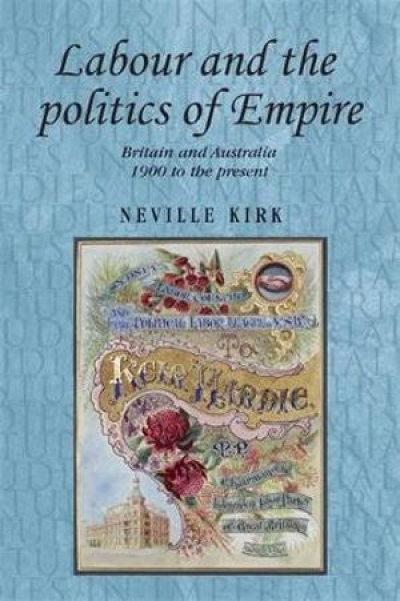Non Fiction
Labour and the Politics of Empire: Britain and Australia 1900 to the Present by Neville Kirk
In 1902 the New Zealander William Pember Reeves published a pioneering study of social innovations in Australia and New Zealand. He wrote it, he said, for the ‘increasing number of students in England, on the Continent, and in America who are sincerely interested in them’ ...
... (read more)Delia Falconer’s Sydney, the third in a series from NewSouth in which leading Australian authors write about their hometowns, is like its harbour, brimful with tones, vivid with contemplation ...
... (read more)British author Glen Duncan released his eighth novel this year, the title of which, The Last Werewolf, is fairly self-explanatory. Although a much more philosophical (and entertaining) read than one might imagine in our current supernaturally-dominated ‘box-office’ novel landscape, Duncan’s book was a marked departure from an author better known for h ...
Sempre Susan by Sigrid Nunez & Swimming in a Sea of Death by David Rieff
In her short memoir of Susan Sontag, novelist Sigrid Nunez claims that she did not read the obituaries and commentaries after her death in 2004, and that she was never much interested in what other people said about Sontag. If it’s true, she is indeed a rara avis. Susan Sontag, in death as in life, generates enormous interest and a growing literature, one that promises to burgeon and diversify biographically in the next decade. How long before we hear from the concierge, the oncologist, the tamer of the famous mane?
... (read more)There are two sorts of carelessness that a reviewer of history books will regularly see. The first is a minor marring of virtue: a small blot on a show of swashbuckling confidence and command over grand themes, a lack of care for what lesser men may think, arrogance even ...
... (read more)Italo Calvino once wrote that ‘cities are like dreams: their rules seem absurd, their perspectives are often deceitful, and everything in them conceals something else’, hence ‘we should take delight not in a city’s wonders, whether these number seven or seventy, but in the answers a city can ...
... (read more)P.O.W.: Australian Prisoners of War in Hitler’s Reich by Peter Monteath
Of the fate of Australian prisoners of war in the hands of the Japanese during World War II, the literature – memoir, fiction, history – is voluminous. There were 21,652 of them, of whom thirty-five per cent, or 7780, perished. A good deal has also been written of enemy prisoners – Japanese, German, Italian – who were held in camps in this country, and in pa ...
A Companion to Philosophy in Australia and New Zealand edited by Graham Oppy et al. (eds)
Early in Murray Bail’s novel The Pages (2008), we find the following commentary on the very idea of philosophical research being undertaken in Australia:
How anyone can believe that Sydney could produce in its own backyard a philosopher of world significance or even minor significance shows how little understanding there is of the co ...
Bill Clinton discouraged politicians from picking fights with people who bought their ink by the barrel. Mindful of that advice, Lindsay Tanner has waited until the end of a career dedicated to the ‘serious craft of politics’ to remonstrate with the fourth estate about its fundamental unseriousness in reporting the democratic process ...
... (read more)This fascinating, complex book relies for its success on the simplest of ideas and methodologies. Its publication was the necessary and inevitable follow-on from the hugely successful BBC Radio 4 series, when, over twenty weeks, British Museum (BM) director Neil MacGregor presented short, daily radio commentaries ...
... (read more)

